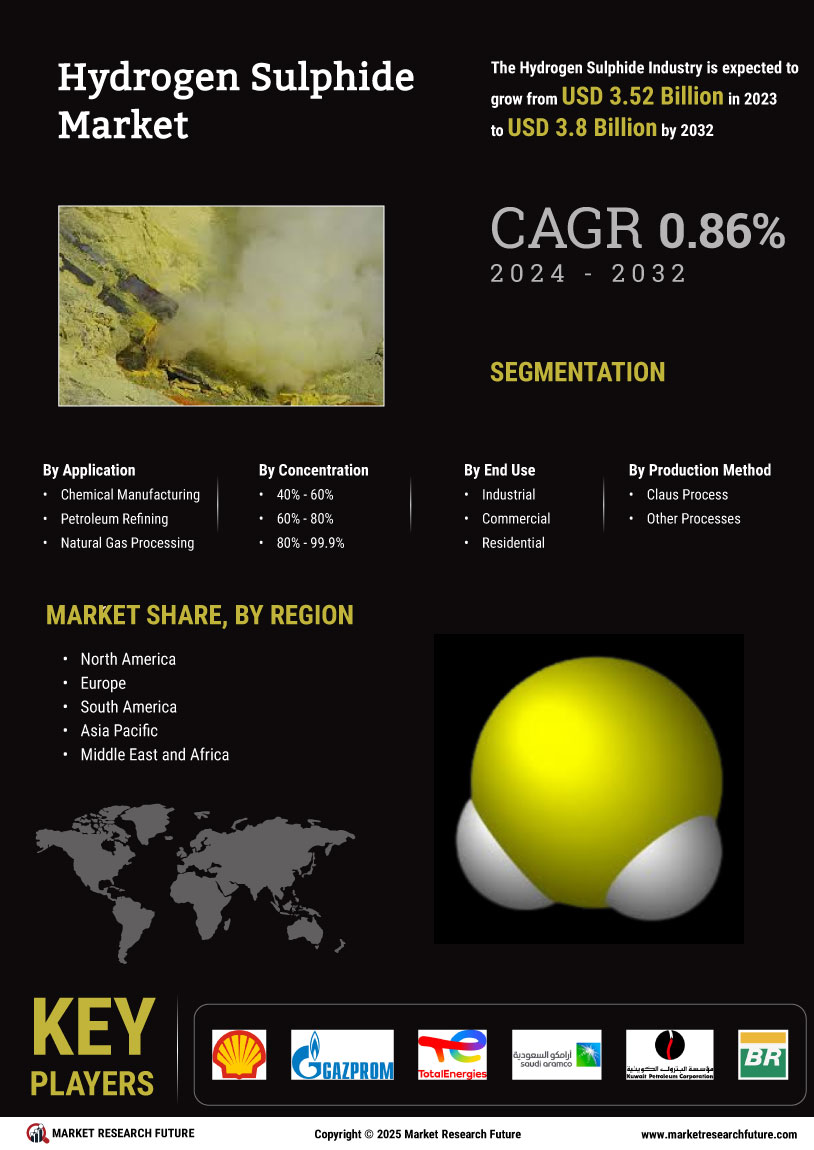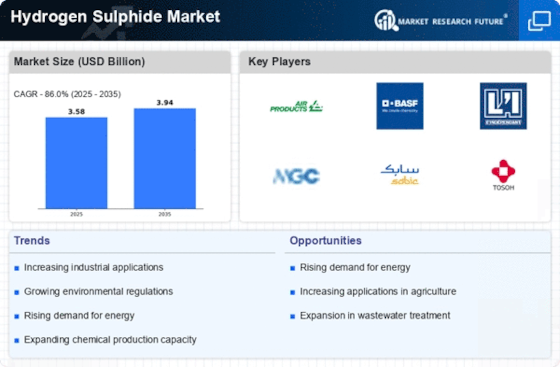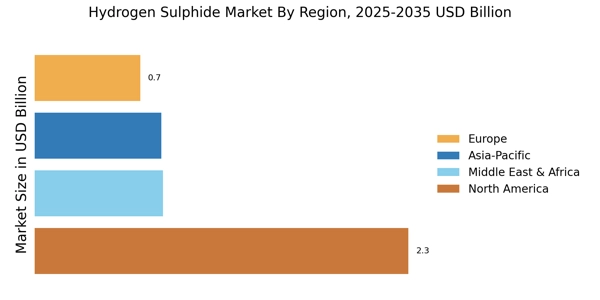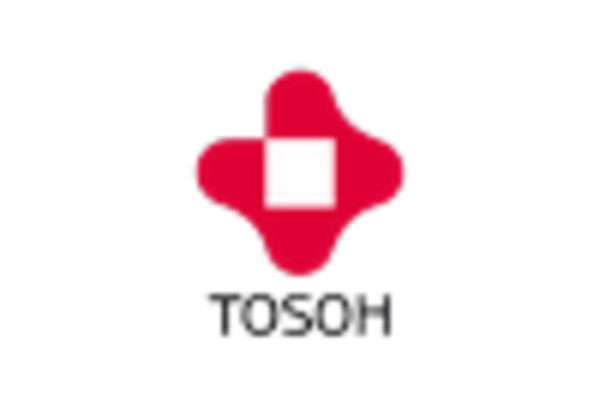Emerging Applications in Renewable Energy
The Hydrogen Sulphide Market is witnessing emerging applications in the renewable energy sector, particularly in hydrogen production. Hydrogen sulphide can be utilized in processes such as biogas reforming and as a feedstock for hydrogen generation, which is gaining traction as a clean energy source. As the world shifts towards sustainable energy solutions, the demand for hydrogen as a fuel is expected to rise. This shift could potentially create new avenues for the Hydrogen Sulphide Market, as companies explore innovative methods to harness hydrogen from hydrogen sulphide. The renewable energy market is projected to grow significantly, suggesting that hydrogen sulphide may play a pivotal role in the transition to cleaner energy systems.
Growth in Oil and Gas Exploration Activities
The Hydrogen Sulphide Market is poised for growth, driven by the resurgence of oil and gas exploration activities. Hydrogen sulphide is a byproduct of natural gas and crude oil extraction, and its management is crucial for operational safety and environmental compliance. As energy demands rise, exploration in previously untapped reserves is likely to increase, leading to higher hydrogen sulphide production. The oil and gas sector is projected to invest heavily in safety measures and technologies to handle hydrogen sulphide, which could enhance the market's value. Furthermore, The Hydrogen Sulphide Market is expected to witness a steady recovery, potentially boosting the Hydrogen Sulphide Market as companies adapt to evolving energy landscapes.
Rising Demand in Water Treatment Applications
The Hydrogen Sulphide Market is experiencing a notable increase in demand due to its application in water treatment processes. Hydrogen sulphide is utilized in the removal of heavy metals and other contaminants from wastewater, making it a critical component in environmental management. As industries face stricter regulations regarding effluent discharge, the need for effective treatment solutions is paramount. The market for water treatment chemicals, including hydrogen sulphide, is projected to grow significantly, with estimates suggesting a compound annual growth rate of over 5% in the coming years. This trend indicates a robust opportunity for the Hydrogen Sulphide Market, as municipalities and industries alike seek to enhance their water treatment capabilities and comply with environmental standards.
Increased Focus on Safety and Hazard Management
The Hydrogen Sulphide Market is increasingly influenced by the heightened focus on safety and hazard management in industrial operations. Hydrogen sulphide is known for its toxicity and potential health risks, prompting industries to invest in safety measures and monitoring technologies. Regulatory bodies are enforcing stricter guidelines regarding the handling and storage of hazardous materials, including hydrogen sulphide. This trend is likely to drive demand for safety equipment and training programs, which could indirectly benefit the Hydrogen Sulphide Market. As companies prioritize worker safety and environmental protection, the market may see a rise in demand for hydrogen sulphide, as well as related safety solutions.
Industrial Applications and Chemical Manufacturing
The Hydrogen Sulphide Market benefits from its extensive use in various industrial applications, particularly in chemical manufacturing. Hydrogen sulphide serves as a precursor for the production of sulfuric acid, which is a fundamental chemical used across multiple sectors, including fertilizers, pharmaceuticals, and detergents. The chemical manufacturing sector is anticipated to expand, with projections indicating a growth rate of approximately 4% annually. This expansion is likely to drive demand for hydrogen sulphide, as manufacturers seek to optimize production processes and enhance product quality. Consequently, the Hydrogen Sulphide Market stands to gain from the increasing reliance on hydrogen sulphide in the synthesis of essential chemicals.

















